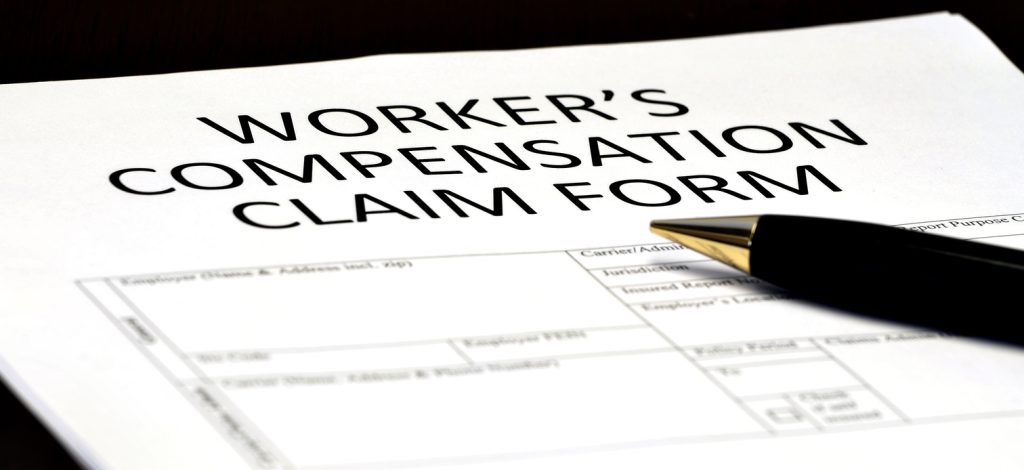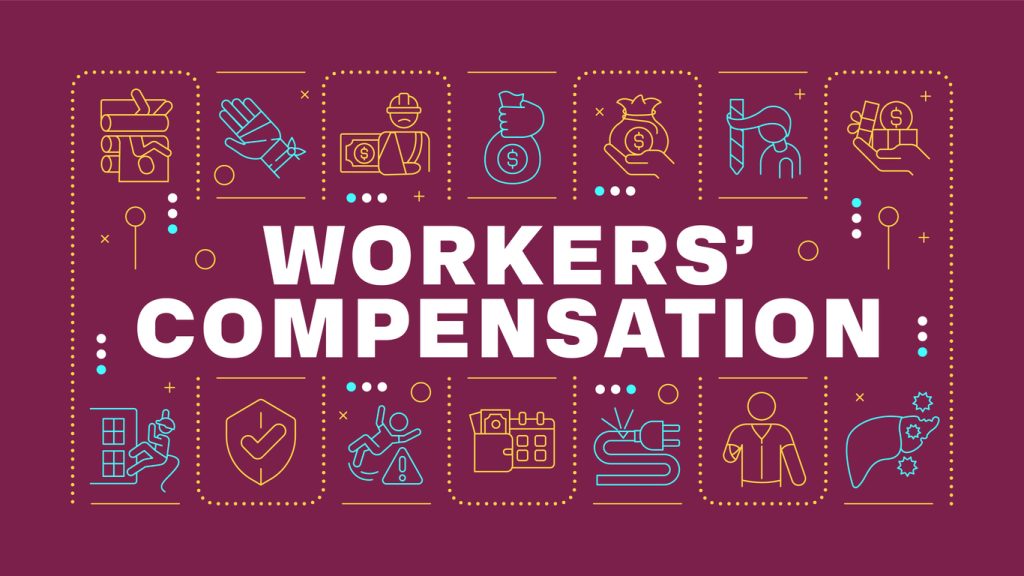When injured while performing duties as a federal employee, workers are often thrust into a bureaucratic maze of forms, deadlines, and medical documentation. In theory, federal workers’ compensation programs exist to support these individuals through recovery and transition. In practice, however, initial claims are frequently denied, often due to preventable mistakes made before legal help is sought. Understanding these early missteps is crucial for any worker hoping to avoid complications that might delay or derail their claim entirely.
Too many federal employees make costly decisions in the early stages of the claim process, long before they consider contacting Denial of federal workers’ comp benefits Attorneys. The Federal Employees’ Compensation Act (FECA), administered by the U.S. Department of Labor’s Office of Workers’ Compensation Programs (OWCP), governs how benefits are awarded. But without a full understanding of FECA’s technical requirements, claimants frequently compromise their own outcomes.
This article details the top five mistakes that can create unnecessary barriers to obtaining federal workers’ comp benefits. Each section highlights where misjudgments commonly occur and how avoiding them can help preserve your eligibility — even before engaging professional legal assistance.
Failing to Report the Injury Immediately: A Common Barrier for Those Seeking Denial of Federal Workers’ Comp Benefits Attorneys
Timely reporting of a workplace injury is more than just a practical step — it is a legal requirement. One of the most frequent causes of denial is a failure to report the injury promptly and through the correct administrative channels. The FECA sets forth very specific timelines for submitting a CA-1 (for traumatic injury) or CA-2 (for occupational disease), and missing these deadlines can give the OWCP cause to reject the claim entirely.
Delays in reporting often occur due to the injured worker’s assumption that the pain will resolve on its own, or because they are unsure whether the injury qualifies for compensation. Some wait for a diagnosis before alerting their supervisors, inadvertently making their case harder to prove.
Workers must understand that filing a report is not an admission of fault nor a commitment to pursue a claim — it’s simply a necessary preservation of rights. Once a delay occurs, the OWCP may question the validity or severity of the injury, and this opens the door to a denial that Denial of federal workers’ comp benefits Attorneys may struggle to reverse retroactively.
Providing Incomplete or Inconsistent Medical Evidence Weakens Support for Denial of Federal Workers’ Comp Benefits Attorneys
Another widespread mistake involves the handling of medical documentation. While many injured workers do visit a healthcare provider, they often fail to obtain a comprehensive and causally connected medical narrative. OWCP regulations require not only a diagnosis but also a clearly articulated relationship between the injury and the employee’s federal duties.
Medical reports that lack clarity, fail to mention work-related causation, or include inconsistent language can derail a claim. This is especially true in cases involving repetitive stress injuries or cumulative trauma, which require even more precise documentation.
Physicians unfamiliar with OWCP claims may omit language necessary for acceptance, believing general statements are sufficient. This is why Denial of federal workers’ comp benefits Attorneys often emphasize the need for a detailed medical narrative that includes the phrase “to a reasonable degree of medical certainty.” Without this, the claims examiner may assume the injury is unrelated to employment and issue a denial.
Even seemingly minor discrepancies — such as different injury dates on separate forms — can be enough for OWCP to reject a claim. And once that denial is issued, the appeals process becomes significantly more complex and time-consuming.

Relying on the Agency’s HR Office for Legal Advice Often Misleads Workers Before They Contact Denial of Federal Workers’ Comp Benefits Attorneys
While human resources departments are tasked with facilitating the submission of federal workers’ comp claims, they are not legal advisors. Many federal employees place undue trust in their HR offices, assuming they will receive guidance on how to maximize the success of their case. In reality, HR representatives are not obligated to advocate on behalf of the injured worker and may inadvertently mislead employees about key steps.
Workers often mistake HR’s role as neutral or supportive, when in fact, HR departments may be concerned with limiting agency liability. Miscommunications can lead to delayed filings, the wrong forms being submitted, or failure to correct application errors before submission to OWCP.
Unfortunately, Denial of federal workers’ comp benefits Attorneys regularly see cases where critical evidence was omitted or incorrectly submitted due to this misplaced trust. For example, HR may advise a worker to see a specific doctor who is less familiar with OWCP requirements, or discourage the employee from documenting pain or injury progression, which weakens the medical evidence record.
This misconception can be extremely costly. Workers should use HR offices for administrative assistance only and seek independent legal guidance as soon as complications arise — or ideally, before submission.
Underestimating the Importance of Witness Statements and Incident Documentation Prior to Seeking Help from Denial of Federal Workers’ Comp Benefits Attorneys
One of the most overlooked elements in federal workers’ comp claims is corroboration of the incident. When an injury occurs in front of coworkers or during documented activities, witnesses can provide critical third-party confirmation that the injury occurred as described. However, many injured employees either forget to collect statements or assume that such evidence is unnecessary, particularly when physical injuries are apparent.
Failing to secure witness statements early can later complicate a claim if the OWCP questions the circumstances or timing of the injury. Without these statements, the case becomes a contest between the claimant’s word and OWCP scrutiny — a battle in which the agency often prevails.
This oversight is especially harmful when the incident was unwitnessed or occurred over time. In such situations, claimants must rely heavily on consistent personal statements and workplace logs to establish credibility. Workers who wait too long to gather this information may find that colleagues have forgotten details or are unwilling to get involved.
In many appeals, Denial of federal workers’ comp benefits Attorneys must scramble to reconstruct this kind of foundational evidence. But early, thorough documentation can dramatically shift the balance in favor of the claimant — sometimes making legal representation less necessary in the first place.
Failing to Preserve Communication Records and Copies of All Forms Undermines What Denial of Federal Workers’ Comp Benefits Attorneys Can Do
Too few federal employees treat their workers’ compensation claim as a formal legal matter from the beginning. As a result, they fail to maintain proper records of communications, forms submitted, dates of interactions, and other key documents that could later support their case.
OWCP claims are document-heavy. A single missing form or misdated record can serve as the basis for denial. When workers fail to retain proof of timely submission, calls with adjusters, or written follow-ups, they surrender the ability to dispute OWCP’s decisions with precision.
This is especially detrimental during the reconsideration or appeal phase. When Denial of federal workers’ comp benefits Attorneys step in after a denial, they must work with the existing paper trail. If that trail is fragmented, missing, or inconsistent, their ability to reverse the denial is limited. Moreover, OWCP rarely grants extensions for missing paperwork unless exceptional circumstances are documented — another reason thorough early recordkeeping is essential.
The best practice is to scan or photograph every submitted document and maintain a journal or digital log of all phone calls, emails, or in-person discussions related to the injury. This defensive strategy often prevents minor errors from escalating into full-blown denials.

The Role of Denial of Federal Workers’ Comp Benefits Attorneys After a Claim is Rejected
Once a denial is issued by OWCP, the road to appeal becomes technically challenging and deadline-sensitive. Reconsideration requests must include new evidence, clearly stated arguments, and precise legal justifications. This is where Denial of federal workers’ comp benefits Attorneys become indispensable.
They help workers identify procedural errors in the initial claim, organize supplemental evidence, and submit formal appeals to the Employees’ Compensation Appeals Board (ECAB) or request a hearing with the Branch of Hearings and Review. These processes are governed by strict procedural regulations, often inaccessible to those without a legal background.
In situations where a claimant failed to act early, these attorneys attempt to rehabilitate a flawed file — though not all errors can be undone. A strong foundation laid at the beginning of the process always increases the odds of success, even in contested cases.
According to the U.S. Department of Labor, federal employees have the right to legal representation in these matters, and the attorney’s fee structure is subject to OWCP approval. This ensures oversight and fairness, especially for lower-income workers who may feel discouraged from seeking help.
Why Prevention is Better Than Litigation When Dealing with Federal Workers’ Comp Denials
All five of these mistakes stem from a single, preventable issue: lack of early preparation. Most federal employees only contact Denial of federal workers’ comp benefits Attorneys after receiving a rejection notice. Denial of federal workers’ comp benefits Attorneys frequently deal with cases where simple, early steps could have prevented unnecessary complications. By the time these attorneys are involved, the burden of proof has shifted, and the opportunity for straightforward corrections may have already passed.
Instead of waiting until denial, federal workers should approach the claims process as if Denial of federal workers’ comp benefits Attorneys were guiding them from the outset. Understanding the OWCP framework, preserving documentation, and submitting accurate information early can help avoid legal entanglements. Workers should not treat the process as a mere formality — it is a serious legal matter with long-term consequences.
Just as one wouldn’t appear in court unprepared, no federal worker should file a claim without treating it as if it may eventually involve Denial of federal workers’ comp benefits Attorneys. Proper documentation, consistency across reports, and clear medical causation can often eliminate the need for later intervention altogether.
Learn More About What to Expect from Denial of Federal Workers’ Comp Benefits Attorneys
Navigating a federal workers’ comp denial doesn’t have to be a solo endeavor. Understanding the most common missteps before filing can make the difference between immediate approval and prolonged appeals. To learn how legal help can clarify and improve your case, visit the guide to dealing with Denial of federal workers’ comp benefits Attorneys at FedWorkCompRep.com.

Further Reference: U.S. Department of Labor Guidelines on Federal Compensation Claims
For authoritative information on how to properly file, amend, or appeal a federal workers’ compensation claim, visit the U.S. Department of Labor’s OWCP Division. This .gov resource includes official forms, deadlines, and regulatory updates — all essential for understanding your rights and obligations as a federal employee seeking compensation.
